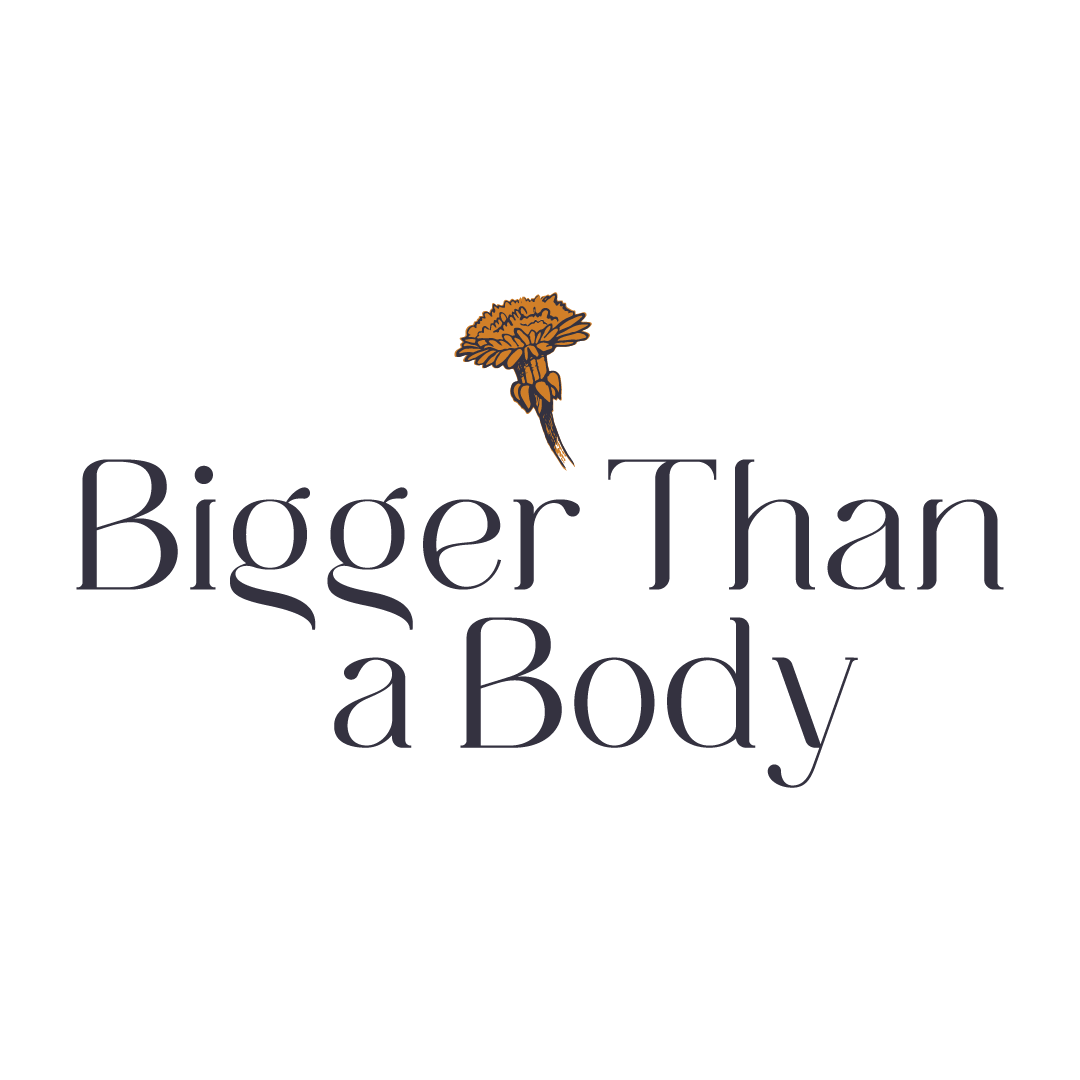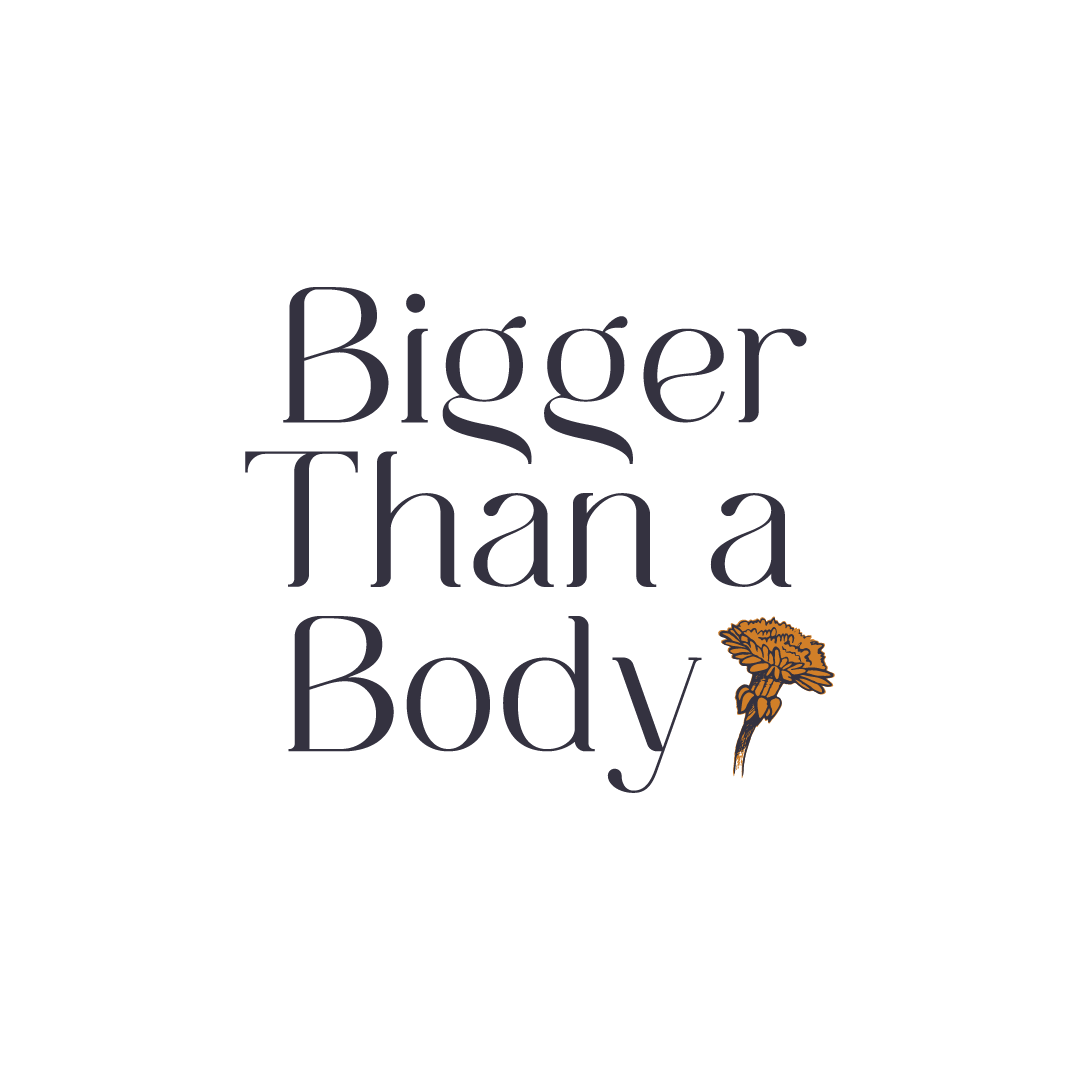Why Your Eating Struggles Are—and Are Not—About the Food
And what approach is right for you to overcome them
Photo by Artem Labunsky on Unsplash
Why is it that others can eat a normal amount of food and move on with life, but I feel out of control when I eat?
Are my harmful eating habits a psychological or biological issue?
Do I have past trauma or mental health issues I need to address to stop dieting, bingeing, and restricting?
Questions like these are common among people trying to understand how their unnatural eating behaviors developed and what they can do to change them.
Fair enough, too. We’re often taught that to resolve personal adversities we must understand the root cause of them, but does that belief hold true in overcoming struggles with food?
Some working in the eating disorder recovery field strongly believe psychological issues are a key player in disordered eating behaviors, making talk therapy and therapeutic treatment modalities like cognitive behavioral therapy (CBT) and dialectical behavioral therapy (DBT) necessary for healing.
Adversely, others profess the disordered eating behaviors themselves cause or exacerbate mental health struggles, and you don’t need to address deep-seated trauma or emotional turmoil to recover.
As someone who survived a 16-year-long battle with bulimia and now works as a certified disordered eating recovery coach, I, too, have opinions about why chronic unhealthy eating behaviors exist, how food is and is not a part of that struggle, and the approaches you should take to heal your relationship with food for good.
What classifies as disordered eating?
First, let’s define disordered eating. According to the National Eating Disorders Collaboration, disordered eating can include restrictive eating (dieting), compulsive eating, or irregular or inflexible eating patterns.
Behaviors that may be present in a person engaging in disordered eating include:
• Fasting
• Binge eating
• Skipping meals
• Avoiding a type of food or food group
• Self-induced vomiting
• Laxative, diuretic, enema misuse
• Steroid and creatine use
• Using diet pills
Factors such as frequency and severity of the behaviors determine whether someone struggling with disordered eating meets the diagnostic criteria for having an eating disorder.
As such, anyone with an eating disorder struggles with disordered eating but not necessarily the other way around.
For this reason, any time I use the term “disordered eating” in this article, note that you can substitute it with “eating disorder” if that better suits your circumstances.
Why disordered eating is not about the food.
As with any illness or disorder, there are certain risk factors that make one person more prone to developing disordered eating behaviors than another.
Genetics loads the gun, but environment pulls the trigger. – Cynthia Bulk, Ph.D., FAED
In their book 8 Keys to Recovery from an Eating Disorder, renowned eating disorder recovery clinicians Carolyn Costin and Gwen Schubert Grabb list four main reasons why eating disorders/disordered eating is more than a problem with food.
They are not caused by any particular food and are not a simple food addiction.
They are fueled by a cultural obsession with appearance and weight.
Underlying risk factors make certain people more susceptible to developing an eating disorder/disordered eating.
It’s the biological makeup of you — not the biological makeup of the food you eat — that contributes to the development of an eating disorder/disordered eating.
Analyzing the above, we can ascertain that your biological makeup is a precursor to your propensity in developing disordered eating, but the behaviors won’t emerge unless certain environmental conditions are present.
I believe Cynthia Bulik, Director of the UNC Eating Disorders Program at the University of North Carolina at Chapel Hill School of Medicine, summed it up best by stating, “Genetics loads the gun, but environment pulls the trigger.”
Eating disorders/disordered eating are not caused by any particular food and are not a simple food addiction.
In my own recovery, I thought for certain I had an addiction to high-calorie, high-fat, sugary foods, so I felt both astonished and reassured to know that may not be the case.
While true the body often craves and derives pleasure from highly palatable carb-dense foods, especially when in a famished state (which I often was), my perception of these foods as “bad” or “forbidden” made them even more desirable.
However, the slight dopamine kick you get from a serving of cake, french fries, or pizza alone is typically not enough to develop an addiction to these foods. Eating copious amounts of these foods, however, triggers a much larger dopamine response, and it is this behavior (overconsumption) and not the substance (food) that breeds addiction.
Eating disorders/disordered eating are fueled by a cultural obsession with appearance and weight.
Can you imagine a world where:
there were as many size 18 leading female actors as there were size 4?
photo editing to shave off pounds, erase cellulite, and brush on muscle tone didn’t exist?
the only meaning of the word “diet” was a summary of foods you commonly eat in a given day?
While disordered eating would still likely exist to some degree, odds are people would feel less compelled to restrict food, count calories, or partake in any other method of eating that claims a promise of weight loss.
But as long as society perpetuates the message that thin is ideal, and diet culture capitalizes off of that notion, humans will almost certainly continue to cultivate unnatural relationships with food and their bodies.
Underlying risk factors make certain people more susceptible to developing an eating disorder/disordered eating.
Nature and nurture determine our fate in virtually every aspect of life, including if and when we develop an unhealthy relationship with food. Can you identify with any of the below genetic and environmental risk factors that make you more likely to develop disordered eating behaviors?
Dieting
Having a family member who struggles with an eating disorder or disordered eating
Being bullied for your size or weight
Extreme body dissatisfaction
Anxious temperament
High achiever or perfectionist mentality
Being a competitive athlete
Pressure from a family or significant other to look a certain way
A history of neglect or abuse — especially sexual
Experiences of food scarcity
It’s the biological makeup of you — not the biological makeup of the food you eat — that contributes to the development of an eating disorder/disordered eating.
As mentioned above, your genetic predisposition plays a role in the thoughts and behaviors you develop around food. An article published by Eating Disorder Hope discusses the linkage between certain inherited genotypes and personality traits that can contribute to the onset of an eating disorder, which include:
Obsessive thinking (I had this one)
Perfectionistic tendencies (Ope, this one, too)
Sensitivity to reward and punishment (Yep, me again)
Emotional instability (Oh, hiiii)
Hypersensitivity (Yup)
Impulsivity (Definitely)
Rigidity (100%)
While research is ongoing, the current general consensus is that the expression of these genetic risk factors does not guarantee you will develop disordered eating behaviors, but they do make it more likely that you will (especially for someone like me who checked off every single one).
Why disordered eating is about the food.
While the food itself may not be the impetus for developing disordered eating, the reality is that if food did not exist, no one would struggle with unhealthy eating habits.
For this reason, changing the way you think about food and how you eat are central to overcoming your disordered behaviors and repairing your relationship with food.
What a healthy relationship with food looks like.
Some aspects of what you consider a healthy relationship with food are highly subjective and based on personal values and health conditions, which I talk about here.
However, you’re likely reading this article because you’re seeking a relationship with food where you can eat freely, without shame, and in a controlled, mindful manner, which is what healthy eating looks like at its core.
In my work as an eating disorder recovery coach, I’ve taken the guidelines and methodologies from various esteemed books like The Binge Code, 8 Keys to Recovery from an Eating Disorder, Brain Over Binge, and Intuitive Eating (all books I used in my own eating disorder recovery) to develop my own comprehensive list of what defines a healthy relationship with food.
Eating adequately: You eat to a point where you feel nourished and satiated. You don’t want to eat so much that it’s uncomfortable to move or bend over but enough to where you aren’t hungry in the next two hours. Ideally, each snack or meal will sustain you for 2.5 to 4 hours.
Honoring your hunger and fullness: If your body shows signs of hunger (growling or empty-feeling stomach, low energy, food sounds very appetizing), you eat. If your body shows signs of fullness (satisfied stomach but still able to move around comfortably), you stop eating.
Eating a variety of foods: You do not rigidly abide by a “good” foods and “bad” foods mentality. This means you sometimes eat primarily for nourishment and nutritional purposes (vegetables, whole grains, legumes) and other times for pleasure (cake, soda, candy bars).
Eating balanced meals: Without being too calculated, you eat snacks and meals that have a good balance of fats, proteins, and carbohydrates.
Honoring your body’s food preferences: If you have an intolerance or sensitivity to certain foods, you limit or remove them from your diet.
Knowing there is no such thing as “perfect eating”: On the occasion you eat too much, work through lunch, or eat Indian food and have explosive diarrhea, don’t beat yourself up. To this day, I sometimes eat past my ideal fullness level because food tastes really good or it’s Thanksgiving, and there’s no way in hell I’m not taking an extra scoop of Mom’s stuffing. You simply trust that your body will constantly gravitate toward its set point weight and move on with your life.
Overcoming disordered eating means altering your current behaviors to mimic those above. This may take you a couple of weeks or several months or longer, depending on how long you’ve struggled with food, how deep that struggle is, and whether you seek professional support, which brings us to our final topic.
Approaches to Overcome Disordered Eating.
Recovery from disordered eating comes in many forms and combinations of treatment, including:
In-patient/residential treatment
Out-patient treatment (working with a therapist, dietitian, primary care provider, and or recovery coach)
Psychotherapy with a psychologist licensed in treating eating disorder clients
Forming meal plans with a registered dietitian/nutritionist
Regular primary care provider visits
Support from a certified eating disorder recovery coach
The type of action you take and support you need in healing your relationship with food depends on several factors, such as:
How long have you struggled with food and/or your body?
Have you been diagnosed with an eating disorder or meet the diagnostic criteria for one?
How chaotic or rigid is your eating?
In what ways does food interfere with your life and your overall happiness?
Have you been diagnosed with a mental illness or suspect you have one?
Have you suffered from trauma/abuse that you haven’t addressed with a professional?
Are you able to hold a full-time job or go to school?
Is anyone (even one person) aware of your struggles with food and supportive of your desire to make changes?
Though your answers to the above are not so cut and dry that answering “Yes” to one and “No” to another means you should receive “X” kind of support, your responses do serve as a guidepost to help you find the recovery path best suited for you.
Example 1
If you have been diagnosed with an eating disorder and struggle to maintain a job or follow through with family or personal commitments, in-patient or out-patient treatment is likely appropriate.
Note: Anorexia (ongoing refusal to eat for long periods of time or eating an inadequate amount of food) is the most deadly eating disorder and often requires outpatient treatment at a minimum.
Example 2
If you have bulimia or binge eating disorder, have (or believe you may have) a mental illness, but are able to work or go to school full-time, seeing a licensed therapist and/or recovery coach might make the most sense.
Example 3
If you consider yourself a yo-yo dieter or someone who struggles with disordered eating but you do not suffer from severe mental illness or deep-seated trauma, perhaps investing in some self-help books and podcasts and/or recovery coaching is a viable path.
Again, your personal struggles are not identical to those of someone else, and figuring out the optimal recovery approach for you may take some exploration.
As a recovery coach, I also have the responsibility to assess any prospective clients and recommend they seek additional services from a therapist, dietitian, etc. if I feel they could benefit from such.
I also recognize the privilege that comes with seeking the appropriate treatment, which can be grossly expensive and not always covered by insurance. For that reason, I advise starting with the approach that feels most right and feasible for you, knowing that it may evolve over time based on your needs, progress, and what you and your provider(s) believe to be the appropriate recovery path for you moving forward.
Whatever approach you chose, know it will include slip-ups and possibly relapses. Know your commitment and motivation may ebb and flow. Know you may experience bouts of hopelessness.
But as long as you stick with it and find the help you feel is truly benefitting you, you can have a healthy, peaceful relationship with food once and for all.
Join my email list to receive a free copy of the 10 Keys to Food & Body Liberation, as well as weekly affirmations, inspirational stories, and more to help you find lasting peace with how you eat, move, and view your body.
Note: I am not a therapist, dietitian, or licensed mental health professional. I do not take the place of such, thus I cannot provide treatment or give associated professional medical advice.


